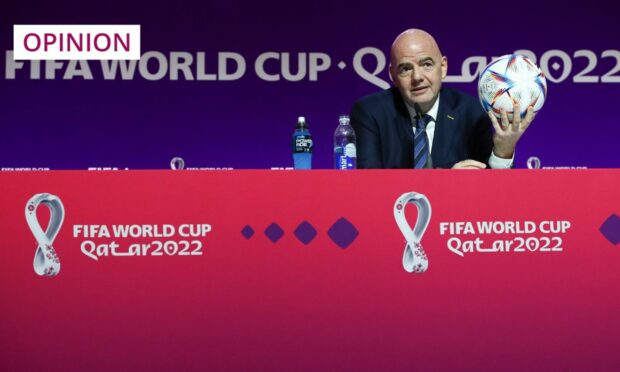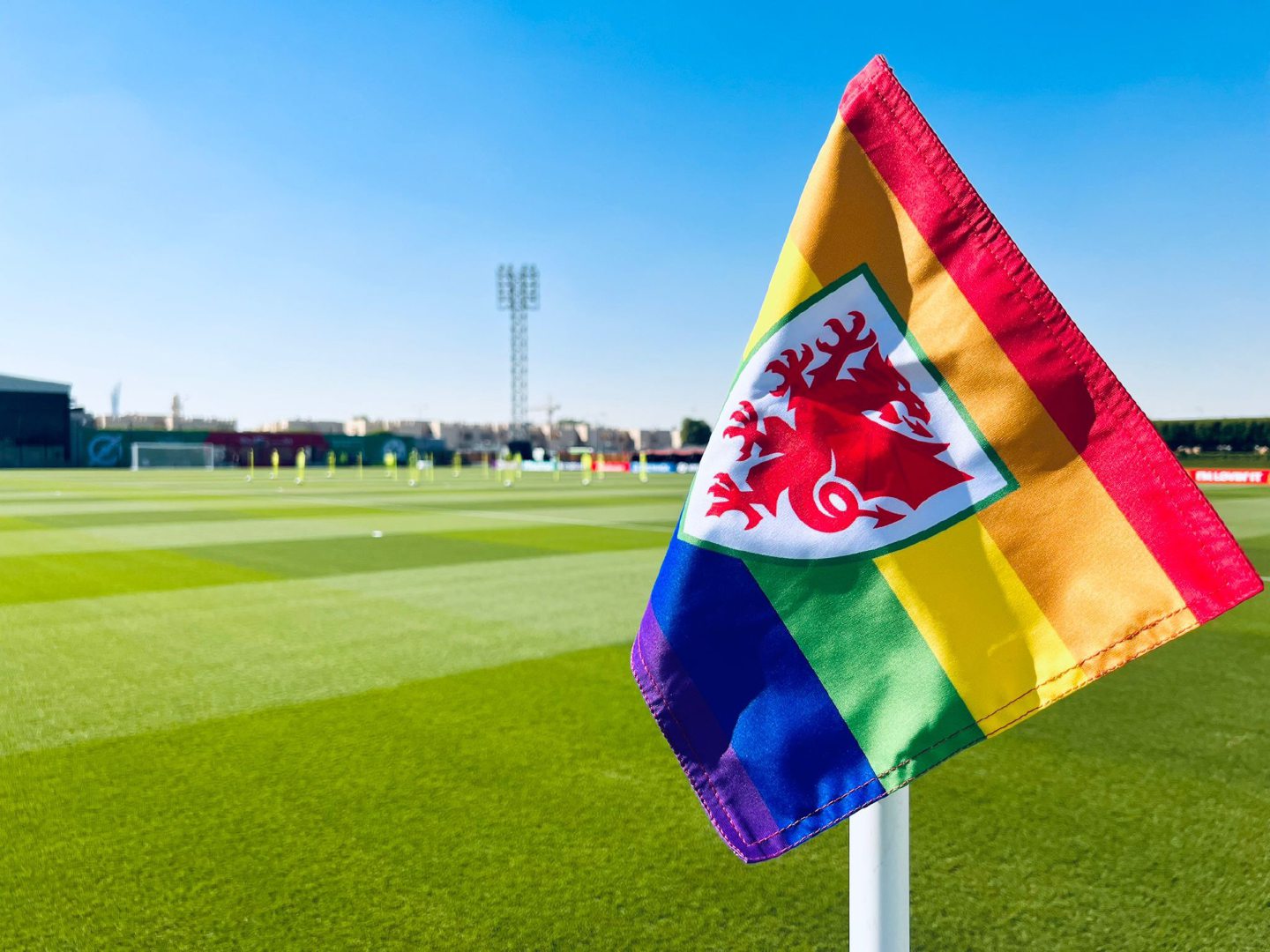Fifa president Gianni Infantino’s now infamous speech in Qatar was, at best, an attention-grabbing rhetorical device, and certainly not a demonstration of empathy, writes Darryl Peers.
Gianni Infantino’s press conference is already infamous. The Fifa president accused those who have denounced Qatar’s human rights record of “hypocrisy”, suggesting that the West’s own is no better, if we look back over a longer span of history.
In the hope, perhaps, of demonstrating his own compassion for all sides of the argument, Infantino listed an array of people he says he “feels like”.
“Today I feel Qatari,” he said, “Today I feel gay. Today I feel disabled. Today I feel a migrant worker.”
He went on to acknowledge that he is – of course – actually none of these things, but that he knows what it feels like to be them, because he has been discriminated against. In his case, he says, he was bullied for having red hair at school.

When I was at school, in Kinellar and Kemnay, I saw how brutal bullying can be for the kids in the year who have red or “ginger” hair. I had classmates who were beaten up, subjected to verbal abuse, and consistently excluded from social events on this basis.
I have red hair as well. But, just because that is the case, it does not mean I know what it feels like to be one of my classmates who was subjected to abuse. Nor do I know what Infantino experienced. On the contrary, there were clearly distinguishing factors which meant that bullies did not treat me so harshly.
I don’t know what it feels like to be other people
I do not know how it feels to be someone with characteristics like my own. More than that, it is hubris to say that I necessarily know what it feels like to be me.
My body – shaped by the emotions, desires, and memories within it – is a complex entity. I do not get to control how it is motivated toward certain things and not others. I can only control how I act in light of those instincts.
Every day, feelings surface in my body, the cause or meaning of which I do not understand. But, life goes on. I do the best that I can to act in ways that seem extensive with what my body wants.
"I don't have to defend Qatar they can defend themselves. I'm defending football and injustice."
FIFA president Gianni Infantino's opening statement as he addressed the media on the eve of the World Cup in Qatar ⤵️ pic.twitter.com/q1rzwx63YU
— Sky Sports News (@SkySportsNews) November 19, 2022
However, my pursuit of self-interest is always tempered by the knowledge that I do not exist in the world alone.
I do not know what it feels like to be other people, and I do not claim to know what is best for anyone else, even if they tell me. People, for a variety of reasons, do not always report their desires accurately.
I balance what my body wants against what others around me seem to want; in both cases, I am always guessing and estimating. It is only if I am willing to accept that I may guess wrong that I can adapt my behaviour, as my awareness of how I or other people seem to be feeling evolves.
Infantino risks erasing the people he claims to support
When Gianni Infantino says that he feels gay, disabled, Qatari, or a migrant, what he means is that he has imagined what he thinks these people feel like, and it is a way he has felt too. But it couldn’t have been otherwise.
This is not empathy. This is a failure to understand the limitations of one’s own perspective
The feelings that he has the capacity to imagine are only feelings he has felt. He has only ever lived in his own body.
If I am being kind, I might believe that Infantino thought an attention-grabbing rhetorical device would demonstrate radical empathy with the different parties implicated in the debate surrounding the Qatar World Cup. However, this is not empathy. This is a failure to understand the limitations of one’s own perspective.
What Infantino risks is no less than the erasure of the very people he claims to feel like, because he imagines himself as able to speak in their place.
Empathy is an ongoing process
I am always sceptical when I hear someone say they have empathy with others, as if, by asserting it, this makes it true. It is not possible to know whether the empathy we perceive ourselves to have is, in fact, an understanding of how someone else feels.
There are so many ways in which we fail to know each other, even when we are trying to know the people we love the most. There are many ways in which we fail to even know ourselves.
If empathy is possible, it is an ongoing process; it is not something I can “have”, like a possession. Empathy, rather, might be to refuse one’s own authority. It might be to say: no, I do not know myself, no, I do not know someone else, and I will live, always, as if I have more to learn.
Infantino was not Fifa president when Qatar was selected to host the World Cup. However, if his recent speech is anything to go by, the communities he claims to have felt like will continue to be disregarded by the organisation’s decisions while he is at the helm.
Darryl Peers is a writer from the north-east of Scotland



Conversation